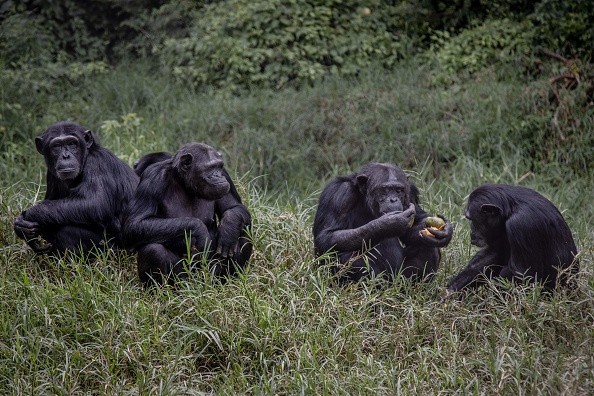The latest report found that wild chimpanzees exhibit unique self-medicating behavior by potentially using medicinal plants to treat their injuries or other ailments.
The animal kingdom is home to many unique species, from creatures that can use tools to animals that can recognize medicinal plants.
In the case of wild chimpanzees, their species are recognized for their intelligence. In a new report, researchers discovered that wild chimpanzees can find medicinal plants and use them for their health advantage.
Wild Chimpanzees and Use of Medicinal Plants

According to a study published in PLOS ONE, researchers studied wild chimpanzees. They found that these species use medicinal plants to treat injuries and ailments.
The recent study's findings can offer new insights into how animals have adapted to their environment. Additionally, it can be helpful for protection and conservation efforts.
Spearheaded by Elodie Freymann and colleagues from the University of Oxford, UK, the report explains that wild chimpanzees consume various plant matter that can help with their illnesses or injuries.
Considering the animal kingdom is competitive and suffers from different environmental threats, understanding how chimpanzees survive can provide new knowledge about their consumption of medicinal plants.
In addition, the report highlights the challenges in determining self-medication. The researchers noted that it is challenging to determine why or how these animals seek the said plants, noting whether they look for plants with medicinal value to treat their illnesses or passively ingest plants that happen to be medicinal.
To better investigate the chimpanzees' situation, the researchers conducted combined behavioral observations of these animals. Additionally, the study employed pharmacological testing of the plants they consumed.
According to the report, the researchers observed at least 51 chimpanzees from areas in Budongo Central Forest Reserve in Uganda.
The researchers gathered extracts from different species of trees and herbs, which chimpanzees use to self-medicate.
Antibiotic and Anti-inflammatory properties
When the researchers conducted the testing, they discovered that the plant extracts contained antibiotic and anti-inflammatory properties.
Another aspect of the discovery is strong antibacterial activity. They noted that Deadwood from the Dogbane family (Alstonia boonei) exhibited antibacterial properties. This has the potential to treat the wounds of wild chimpanzees.
In addition, the plants are rich in anti-inflammatory properties, particularly those from the East African mahogany tree (Khaya anthotheca) and the leaves of a fern (Christella parasitica).
It is also likely that injured chimpanzees can feel less or reduced pain when they consume the said medicinal plants.
With the role of forests and plants to different species, the report highlights the importance of protecting animal habitats from decline or threats. Additionally, strict measures are crucial to protect forests.
For more similar stories, don't forget to follow Nature World News.
© 2025 NatureWorldNews.com All rights reserved. Do not reproduce without permission.





